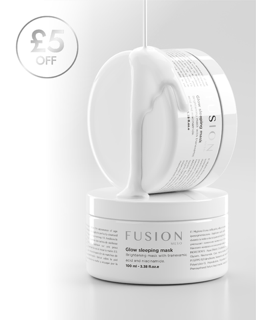Anti-Aging Exposed: Separating Fact from Fiction in Skincare
- marielarkin15
- Aug 29, 2024
- 4 min read
Navigating the Skincare Maze
In today’s world, the skincare industry is overflowing with products, advice, and promises that claim to be the fountain of youth. With countless articles, influencers, and brands offering different perspectives, it’s easy to feel overwhelmed and confused about what actually works when it comes to anti-aging. The key to achieving and maintaining youthful skin lies in being able to distinguish between fact and fiction. In this blog, we’ll expose some of the most common myths surrounding anti-aging skincare and shed light on the truths that can help you make informed decisions for your skin.
Fiction #1: "Anti-Aging Products Can Reverse Time"
One of the most pervasive myths in the skincare world is the idea that anti-aging products can literally turn back the clock, erasing years from your skin. This notion, while appealing, is far from the truth.
The Reality: Anti-aging products are designed to improve the appearance of your skin by addressing issues like fine lines, wrinkles, and age spots. Ingredients such as retinol, hyaluronic acid, and peptides work to boost collagen production, hydrate the skin, and reduce the appearance of aging signs. However, these products cannot undo years of damage or make your skin behave like it did when you were younger. What they can do is help you maintain your skin’s health, slow down the visible effects of aging, and create a more youthful appearance over time. The key is to manage expectations and understand that while anti-aging products can make a significant difference, they are not a time machine.
Fiction #2: "All Anti-Aging Products Are Created Equal"
With so many anti-aging products on the market, it’s easy to assume that they all offer the same benefits. This misconception can lead to disappointment and frustration when a product doesn’t deliver the desired results.
The Reality: Not all anti-aging products are created equal. The effectiveness of a product largely depends on the active ingredients it contains. Some of the most potent anti-aging ingredients include retinol, vitamin C, and peptides. Retinol is a powerhouse for promoting cell turnover and reducing the appearance of fine lines and wrinkles. Vitamin C is an antioxidant that brightens the skin and protects it from environmental damage. Peptides help stimulate collagen production, which is crucial for maintaining skin’s firmness and elasticity.
When choosing anti-aging products, it’s essential to look beyond the marketing and focus on the ingredient list. Products with clinically proven active ingredients are more likely to provide real results than those that rely on hype or trendy packaging.
Fiction #3: "More Is Better When It Comes to Anti-Aging Products"
In the quest for youthful skin, it’s tempting to think that the more products you use, the better your results will be. However, this approach can do more harm than good.
The Reality: Using too many anti-aging products, especially those with strong active ingredients, can lead to skin irritation, redness, and even damage. For example, overusing retinol or combining it with other potent ingredients like acids can compromise your skin’s barrier, leading to dryness and sensitivity. A balanced skincare routine is essential for maintaining healthy, youthful skin. This means using the right products in the right amounts, and giving your skin time to adjust to new ingredients.
It’s also important to remember that consistency is key. It’s better to stick to a simple, effective routine that you can follow daily than to overwhelm your skin with too many products at once.
Fiction #4: "You Should Avoid Fats in Your Diet for Better Skin"
With the rise of low-fat diets, many people believe that cutting out fats is the key to achieving clearer, healthier skin. However, this approach overlooks the important role that healthy fats play in maintaining skin health.
The Reality: Healthy fats are essential for maintaining skin elasticity, moisture, and overall health. Omega-3 fatty acids, found in foods like fish, walnuts, and flaxseeds, are particularly beneficial for the skin. They help to maintain the skin’s barrier function, keeping it hydrated and protected from environmental stressors. Additionally, fats aid in the absorption of fat-soluble vitamins like A, D, E, and K, which are crucial for skin health.
Instead of avoiding fats, focus on incorporating healthy fats into your diet. This will not only benefit your skin but also contribute to overall health and well-being.
Fiction #5: "DIY Skincare Is Just as Effective as Store-Bought Products"
The DIY skincare trend has gained popularity, with many people turning to homemade remedies in an effort to achieve glowing skin. While this approach can be fun and cost-effective, it’s not always the best choice for your skin.
The Reality: While some DIY skincare remedies can provide temporary benefits, they are often not as effective as professionally formulated products. Store-bought products undergo rigorous testing and are formulated with precise concentrations of active ingredients that are proven to work. In contrast, DIY recipes can lack the stability, safety, and efficacy needed to deliver consistent results.
Additionally, some natural ingredients used in DIY skincare, such as lemon juice or baking soda, can be harsh and damaging to the skin. It’s important to be cautious and prioritise the use of products that have been scientifically tested and proven to be safe and effective.
Focus on Proven, Effective Skincare Practices
In the world of anti-aging skincare, it’s easy to get lost in a sea of misinformation and myths. However, by focusing on evidence-based practices and being mindful of what really works, you can achieve and maintain youthful, healthy skin. Remember, the goal isn’t to reverse time, but to support your skin’s natural processes and protect it from further damage. By debunking these common myths, we hope to empower you to make informed choices that will benefit your skin for years to come.




Comments